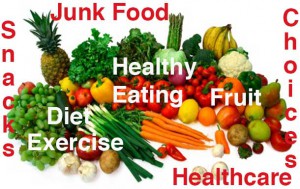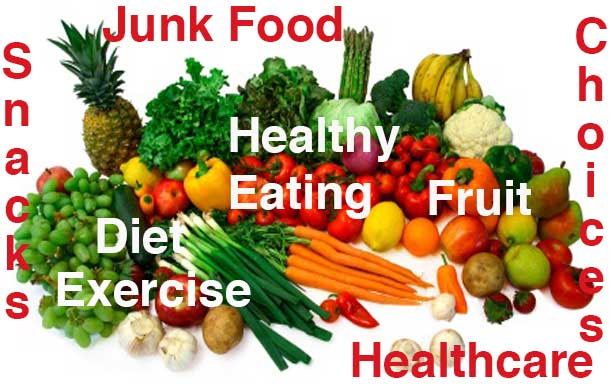 VICTORIA, BC – HEALTH – A few years ago I dug into and ended up debunking a large number of diet and food myths. Alongside the main course of fat, sugar, salt, and so on, I looked into a few appetizers. One of these was the idea that healthy eating includes consuming whatever you consume as small frequent meals: nibbling.
VICTORIA, BC – HEALTH – A few years ago I dug into and ended up debunking a large number of diet and food myths. Alongside the main course of fat, sugar, salt, and so on, I looked into a few appetizers. One of these was the idea that healthy eating includes consuming whatever you consume as small frequent meals: nibbling.
In support of this kind of eating we are told by qualified people such as nutritionists (1) and others such as fitness trainers (2) that infrequent eating or binging puts the body into starvation mode, makes it impossible to lose weight, stresses the glandular organs, and produces dangerous blood sugar highs and lows.
The alleged health benefits of eating just a little bit of food many times through the day include an easier time losing weight, avoiding high and low nutrient levels including blood sugar, and preventing “overeating,” which didn’t seem otherwise to be defined anywhere that I could find.
When I went searching for evidence to support the benefits of eating up to six times a day (or more) I found eight articles, but only one, published in 1989 in the prestigious New England Journal of Medicine (3) directly examined the issue. Three meals a day was termed “gorging”, and the intervention was picking at 17 snacks per day. The endpoints were all surrogate (blood test results and blood pressure readings as opposed to any kind of real health event), showing the “metabolic advantages” of the nibbling pattern of eating (the differences shown were small).
I don’t know many people who would consider three meals a day “gorging.” The conclusions of the study are speculative.
A review article in 2008 gathered numerous studies together, one of which associated small frequent meals with greater success at weight loss. One study reviewed suggested that frequency of meals was mostly associated with subjects’ acculturation (4). Five other trials found no association of increased meal frequency with successfully losing weight. The one prospective trial in which total energy was restricted did not produce weight loss benefit, and a review in 1997 concluded that nibbling does not have energy metabolic advantages in terms of energy utilization over gorging.
Weight loss is, of course, a surrogate endpoint not associated with any real health outcome like not getting sick or delaying death. My literature review indicated that the majority of studies that have been done on the topic suggest eating small frequent meals make no health difference, and the one better-quality trial was in that majority.
Once we get a grip on how little science there is to support any benefit from nibbling I think we can be forgiven for wondering whether the real message is kind of cultural. I get the feeling a lot of people believe that nibbling is just nicer behaviour than the opposite. Less ugly and aggressive than stuffing your face or binging like a wild animal or out-of-control addict.
I should disclose that I starve and binge. I find eating lots of delicious food, I think for sound evolutionary reasons, fabulously affirming. It happens I don’t want to be overweight, although my reason is strictly aesthetic, so I have to limit the amount of food I take in each day. I’m determined to experience the pleasure of eating all I want and not get fat.
The only dietary pattern that meets both of my needs is to eat lots of satisfying food infrequently, so that’s what I do. Of course, no good evidence supports doing anything else in order to obtain a health outcome.
I’ve had to conclude that eating small frequent meals, like a lot of other ideology about what we should and shouldn’t be eating, appeals to us in an ideologically representative or cultural way. Personally I think cultural ideas about food are important. I love the fact that the presentation, anticipation, sensual enjoyment, and satisfaction associated with eating represents a world of meaning in human relationships.
What a shame that we usually focus only on simple health outcomes (which, in general, we can’t actually get from changing our diet) and sometimes miss the real significance of what’s for dinner.
John Sloan
John Sloan is a family physician whose practice is confined to home care of frail elderly people, and avoiding institutional care of these patients. He has published numerous articles and several books on healthcare. His most recent ebook, Forbidden Food: How Science Says you can Eat what you Like and Like what you Eat (Kindle) is available on Amazon.com. He lives with his family in Vancouver.
REFERENCES
- Megan Porter, “Eating Smaller, More Frequent Meals,” CaloriesPerHour.com Newsletter [Online], Available: http://www.caloriesperhour.com/news_051130.php
- Monique Rider, “The Top 10 Reasons to Eat Small Frequent Meals,” Ezine Articles [Online], Available: http://ezinearticles.com/?The-Top-10-Reasons-to-Eat-Small-Frequent-Meals&id=2573055.
- Jenkins D et al, “Nibbling Versus Gorging: Metabolic Advantages of Increased Meal Frequency,” New England Journal of Medicine, 321(14):929-34 (Oct. 5, 1989).
- S.-K. Lee, “Acculturation, Meal Frequency, Eating out, and Body Weight in Korean Americans.,” Nutritional Research and Practice, 2(4):269-274 (2008).
Troy Media








